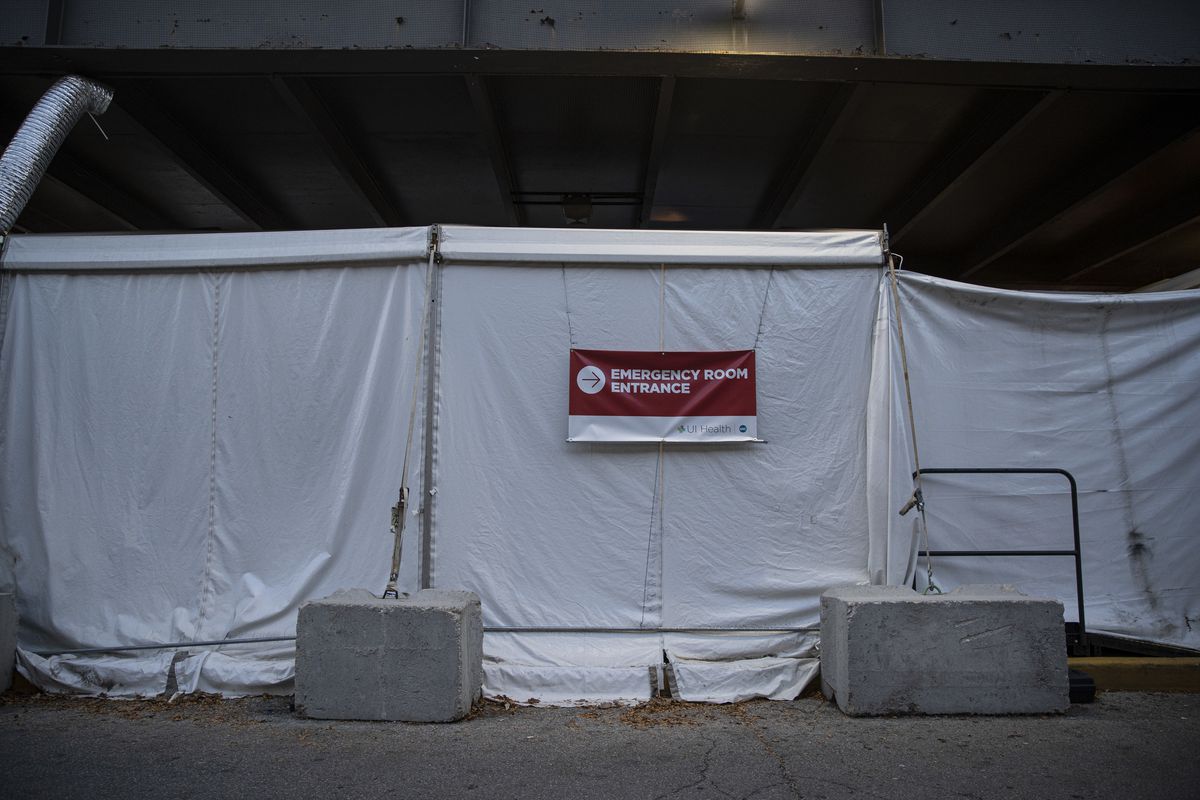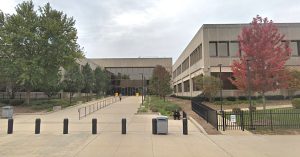Latest
Chicago hospitals brace for biggest COVID-19 surge yet
Chicago hospitals are preparing for an onslaught of COVID-19 cases amid predictions that a new surge is going to be bigger than any seen yet during the pandemic.
Hospitals are recruiting additional nurses, reconfiguring and adding spaces to separate a growing number of virus patients from others and, in some cases, frantically trying to prevent reaching capacity. Some are limiting procedures that aren’t urgent.
As of Tuesday, more than three quarters of the city’s 9,500 hospital beds were full, according to city figures. COVID patients are using nearly 20% of intensive care beds and more than 10% of the rest.
But that’s rising rapidly.
The hospital at University of Illinois at Chicago has seen its COVID cases jump from single digits late last month to more than 60 this week, said Susan Bleasdale, UIC’s chief quality officer and an infectious disease doctor. It’s a trend she worries will continue, overtaking a spring peak when the West Side hospital recorded 90 virus cases at one point. This week, the hospital reached its capacity.
“Our hospital is packed. Our emergency room is packed,” Bleasdale said. “We hit a point where we didn’t have any beds available.”
UIC is preparing to reactivate three outdoor tents as early as next week to handle almost 40 patients as hospital officials fear they’ll run out of room. The hospital is testing as many as 800 patients a day and seeing more than 20% positivity rates, higher than the city average, she said.
“I’m worried we’re going to see a much worse wave than before,” Bleasdale said.
News
10:31 a.m. María Cerda, first Latina on Chicago Board of Education, dead of coronavirus at 86
In 1969, when María Cerda became the first Latino member of the Chicago school board, some news stories called the University of Chicago-trained social worker a “housewife” who would advocate for “Latin” students.
Mrs. Cerda not only lobbied fiercely for the Latino community, but she also adroitly navigated City Hall with her strategic alliances and powerful speeches.
Mayor Richard J. Daley put her on the Board of Education.
She was an early supporter of Harold Washington and sometimes warmed up crowds before his speeches. When he was elected mayor, he made her director of the Mayor’s Office of Employment and Training.
Mrs. Cerda died Sunday at Northwestern Memorial Hospital of complications from the coronavirus, according to her children Marta and David Cerda. She was 86.
Her daughter and her husband of 60 years, David Cerda, 93, who was the first Hispanic judge in Illinois and the first Hispanic judge on the Illinois Appellate Court, also have been infected.
“I have COVID, my father has COVID,” their daughter said. “So we have to do just an outside burial. It’s very sad that we can’t have a memorial right now. It is cruel.”
Read Maureen O’Donnell’s full story here.
9:09 a.m. Now-closed McCormick Place COVID-19 hospital cost taxpayers $15M to staff, run
As the U.S. Army Corps of Engineers raced to build a $66 million emergency COVID-19 field hospital inside McCormick Place last spring, state and city officials scrambled to find the staff, equipment and supplies to run it.
The tab for all of that was another $20.3 million, records obtained by the Chicago Sun-Times show, though state officials say two vendors returned a total of $5.2 million of “unspent funds.”
That brought the total cost of building and staffing the short-lived, makeshift coronavirus hospital to about $81.1 million.
State and city officials say they expect most of the costs for the McCormick Place hospital to be covered by the federal government.
The Illinois Emergency Management Agency spent $19 million to staff and operate the hospital. City Hall put in another $1.3 million for materials and supplies.
The McCormick Place field hospital, built by Walsh Construction, one of Chicago’s most politically well-connected contractors, opened in mid-April. It was shut down only weeks later, on May 8, as the demand for hospital beds for coronavirus patients eased, and it was deemed by state and city officials to no longer be needed.
New Cases
- Public health officials announced 12,702 more people have tested positive while hospitals across the state remain packed with the most COVID-19 patients they’ve ever seen.
- Peter Giannikopoulos, one of the suitors vying for Tayshia Adams’ hand on the current season of ”The Bachelorette,” announced Tuesday that he had tested positive for COVID-19
Analysis & Commentary
10:29 a.m. He went to the hospital in the morning. By mid-afternoon, he was dead from COVID-19.
John Sprinkle of Evergreen Park observed his 36th birthday Nov. 4.
He didn’t celebrate because he had been feeling sick. But he went on Facebook the following day to thank everyone for wishing him well.
The next morning, having trouble breathing, he called 911 to take him to the hospital. He was able to walk to the ambulance and waved to a neighbor.
A couple of hours later, he texted his sister from the emergency room, saying he was feeling better.
At 3:38 that afternoon, Sprinkle was dead from acute respiratory failure caused by COVID-19.
Just like that.
The toll from the coronavirus pandemic is mounting again, much like it was in the spring, and I’ve decided to return to what I was doing then: telling the stories of the victims.
Read Mark Brown’s column here.
9:14 a.m. Should I or should I not get tested for COVID-19?
I have not.
I have not taken.
I have not taken a COVID-19 test.
I don’t know why that feels like a shameful confession.
Maybe it’s because so, so many people have died worldwide from this pandemic — 1.28 million according to the “Our World in Data” website.
Or maybe what I’m really feeling is survivor’s guilt.
I am, after all, in a group considered high-risk for catching the virus.
I’m Black. I’m a senior citizen. I have a compromised immune system.



















